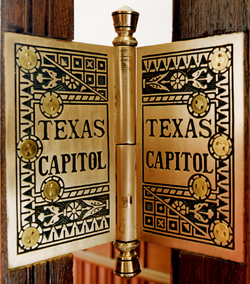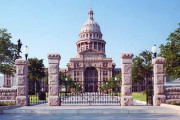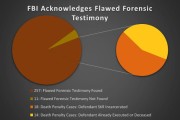Texas Criminal Legislative Update: April 19, 2015
The Texas Senate and House Committees continue to hold hearings to debate and flesh out the myriad criminal justice-related bills that have been filed this Session. Here are our notes on some of the important legislative pieces as they are passed out of their respective committees.

Texas State Preservation Board
HB 48 by Representatives McClendon, Leach, Herrero and Moody would create the Timothy Cole Exoneration Review Commission to review convictions after exoneration in order to make recommendations aimed at preventing further wrongful convictions. The same bill was filed (but was not passed into law) by Representative McClendon in the 2011 and 2013 Legislative Sessions. Timothy Cole, the bill’s namesake, was a student at Texas Tech in 1985 when he was wrongfully convicted of rape; he subsequently served 13 years in prison before his death. Mr. Cole was exonerated in 2009 and granted the state’s first posthumous pardon by Governor Perry in 2010.
HB 65 by Representatives McClendon, Naishtat, Zerwas and Coleman would authorize certain private entities to operate needle exchanges. The committee substitute to the bill gained committee support after it was amended to prohibit funding from public entities; the bill creates a defense to prosecution for volunteers who operate these exchanges, and has certain reporting requirements. Representative McClendon has championed this issue in recent Sessions, and has the support of the San Antonio Express-News Editorial Board and Bexar County District Attorney Nico LaHood (a program that was openly doubted by his predecessor Susan Reed).
Representative David Simpson’s HB 2165 to legalize marijuana use for persons over 21 received its day in committee, but legislators aren’t likely to allow it to move forward this Session. It did, however, receive a nice rhyming ditty from Grits for Breakfast called “Treat It Like Tomatoes” Marijuana is not yet legalized in Texas, so if you get a marijuana possession charge get a lawyer..
SB 236 by Senator Charles Schwertner (R-Georgetown) would create an increased penalty for the sale or possession of LSD in a drug-free zone (such as a school or park). Such increased penalties already exist for sale or possession of other drugs such as marijuana, cocaine and heroin, but LSD has not been included in this designation since it was changed to a Penalty Group 1-A drug in 1997.
SB 380 by Senator Jose Rodriguez (D-El Paso) would expand the use of court summons in lieu of “Blue Warrants” for (1) parolees accused of administrative violations and have been under supervision at least one year, and (2) parolees accused of Class B and C misdemeanors who have a stable job, stable home and no history of family violence. Expanding this practice of using summons could dramatically cut down on unnecessary trips to the county jail, which in turn will be less likely to disrupt parolees’ employment and family; it will also potentially save counties millions of dollars by lessening these short-term county jail incarcerations.
SB 393 by Senators Burton and Rodriguez updates the monetary thresholds for theft- and property-related offenses to account for inflation (which have not been adjusted since 1993). The new thresholds would be as follows: Class C: Less than $100 (currently less than $50); Class B: $100-750 (currently $50-500); Class A: $750-2,500 (currently $500-1,500); State Jail Felony: $2,500-30,000 (currently $1,500-20,000); Third Degree: $30,000-150,000 (currently $20,000-100,000); Second Degree: $150,000-300,000 (currently $100,000-200,000); and First Degree: $300,000 or more (currently $200,000 or more).
Several of Senator John Whitmire’s bills which we have previously reviewed have been passed out of the Senate Criminal Justice Committee and sent over to the House for consideration: SB 106 would allow students to have multiple truancy cases dismissed or expunged; SB 135 would eliminate the current pick-a-pal Grand Jury system; and SB 1630 would allow judges to send juvenile offenders to regional centers instead of a youth correctional facility.



